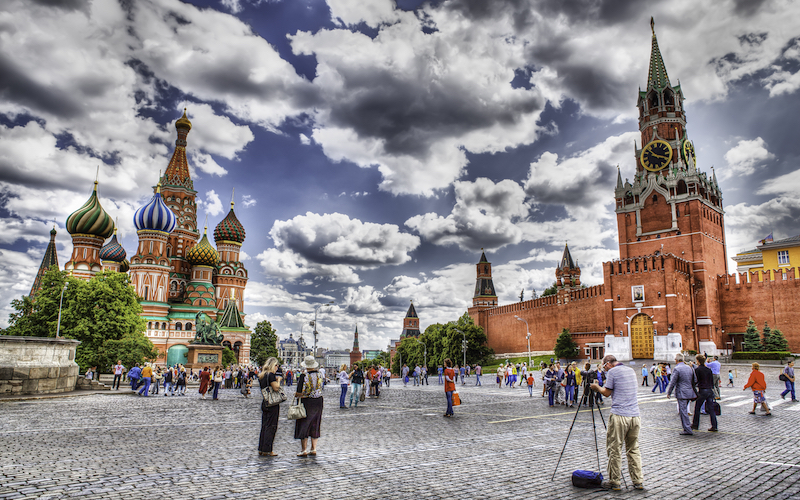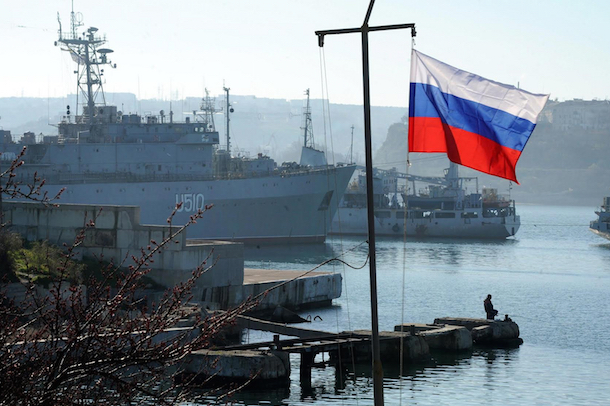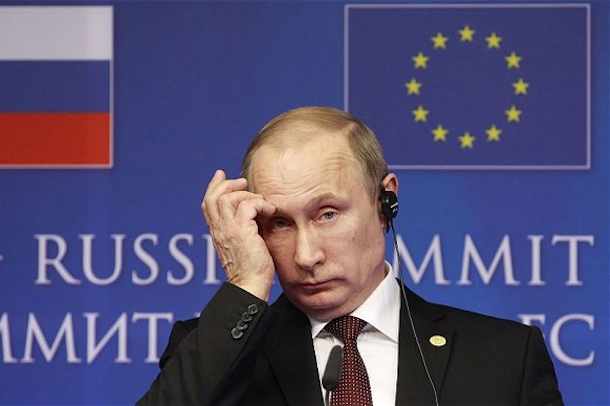
Putin’s Pendulum: Oil Realities vs. Geopolitical Ambitions
In The Prince, Niccolo Machiavelli said,“There is no avoiding war; it can only be postponed to the advantage of others.” Today, foreign policy and defense analysts should view Russia-Ukraine relations through Machiavelli’s words. Russia, already hit by European and American sanctions, is facing an economic downturn and is beginning to second-guess its support for Russian separatists in eastern Ukraine where a passenger jet has already been downed and several thousand killed. Headlines have discussed the question of a potential war with Russia, yet the real debate should focus on Russia’s immediate future as a global economic force.
While Putin’s marauding foreign policy could accelerate things, Western sanctions, pushed through by President Obama, should be hailed as a rare success in a spotted track record as world leader. Though international response/assistance has admitedly been far from perfect, the message is clear: Russian aggression will not be tolerated — the world will act. Though neither current nor future sanctions will ever assuage hawks pressing for boots on the ground, Russia’s world influence and economy has greatly regressed as a result of today’s sanction.
Russia’s inherent sociopolitical vulnerabilities are slowly becoming visible and a strong reliance on its few alliances will be seen in the coming months.
The influence and tangibility of these inevitable pacts may be unknown today, but it will more than likely hinge on China’s sustainable growth and a shared belief that the West is downplaying their rise as new global hegemons.
Some of Russia’s ailments are well known. Its energy based economy surged upward on rising energy prices. However, now that oil has tumbled, from an average of almost $110 a barrel in the first half of the year to below $80 — Russia’s economy is hurting. World oil prices are down 40 percent since June, largely on abundant supply. Importantly, more than two-thirds of Russia’s exports come from energy. And while Putin had hoped that OPEC would act in helping to slow down falling oil prices, it now seems entirely doubtful.
Western sanctions have caused foreign bankers to target restrictions across Kremlin’s economic elite. More generally, years of kleptocracy have had a corrosive effect on Russia and its people. The sanctions have damaged the Russian economy as foreign bankers have applied restrictions across the Kremlin’s economic elite. Russia’s Economy Minister, Alexei Ulyukayev, told radio Ekho Moskvy on November 17th, that inflation in Russia will exceed 9 percent by year-end and will only rise further in early 2015 because of the ruble’s weakness. In less than three months, the ruble’s value has fallen by 23%.

On December 1st, Reuters reported that oil prices hit five-year lows as slowing factory activity in China and Europe added to the impact of OPEC’s decision to maintain supply, hammering resource-linked stocks and currencies.
Oil experts predict that oil prices could average $83 a barrel in 2015, well below the $90 level Russia needs to avoid recession. At a time when few Western banks want to increase their Russian exposure, Russian firms have over $500 billion in external debt outstanding with $130 billion of it payable before the end of 2015. Reports suggest that Russia’s reserves are evaporating, down $100 billion in the past year, and the bookkeeping is dodgy at best.
However, fortunately for Russia, Putin’s import-blocking counter-sanctions have allowed for a small trade surplus. Russia has a stash of foreign-exchange reserves of approximately $370 billion, according to Russia’s Central Bank. Putin apologists are holding out hope that Putin can turn things around in the short to medium term..
Survival
On the sidelines of the Asia-Pacific Economic Cooperation (APEC) summit, held in Beijing this month, Russia agreed to a deal to supply even more natural gas to China, on top of a $400 billion pact inked earlier this year. It would be safe to assume that Russia will become more forceful in its approaches to a closer economic partnership with Asia and in particular, China. A Chinese analyst told Reuters that the agreement to supply Russian energy to China would enormously strengthen relations between the two countries, with vast political implications in the background.
According to TASS, Russia’s Foreign Minister, Sergey Lavrov, said that North Korea is ready to consider projects to use its territory as a transit route for Russian gas and electricity deliveries to South Korea. Russia needs Asia’s emerging economy as a buyer for its mineral resources and for its agricultural production capabilities to supply national demand — especially due to damaged relations with its primary former trade partner, the European Union.

Russia will not be able to quickly replace trade and FDI relations with the European Union, but it may be able to better balance and diversify its economic relations. In the best case scenario, Russia will manage to enhance bilateral agreements and gain access to Asian regional international alliances. Even then, positive growth is far from an immediate reality and it will take some time to develop.
Meanwhile, in a meeting where the two countries also sought to overcome difference over Syria, Bloomberg BusinessWeek reports that Russia is willing to cooperate with Saudi Arabia’s OPEC ‘playbook’ — yet will avoid a commitment to limit output to reverse plunging prices. The meeting between their foreign ministers came on November 21st, amid further energy trade talks with China, North Korea, and Ukraine. This vital pivot in Russia’s heavily influenced energy derived foreign policy further illustrates a redistribution of net power abroad, especially in globally conducive relations via Beijing.
Reading from the script
History, Russia has very close ties to the Russian separatists-oriented population in North-Eeastern Ukraine – culturally, socially, and demographically. Not only in the Crimea/Donetsk People’s Republic, but also in and surrounding areas throughout Ukraine.
By nature, the conflict in Ukraine is about a division of the country and not a battle between rivaling global ideologies — as one may assume based on this year’s updated media coverage. This is not only a case of domestic disturbance and instability in Ukraine, however, as it is related to the position Russia currently occupies in the world.
Russia’s influence in Eastern Europe and/or its neighboring countries has shifted drastically since the 1980s. Russia was a declining power at the end of the Cold War but it has regained its influence and that influence is a critical factor in explaining Russia’s position in the instability we see in Ukraine. It is truly a textbook case of power transition. The good news is that Russia’s realigned economic ties with China pose no negative externalities on US-China relations. Instead, broad trade pacts between Russia, South Korea, and China will serve as a lifeline in future western lead negotiations concerning Ukraine.

